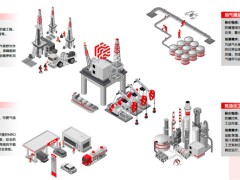据福布斯2月1日报道,对于石油交易商来说,围绕近期游戏驿站公司(GME)股价飙升的争论耳熟能详,对查尔斯 狄更斯(Charles Dickens)的粉丝而言也是如此,他在《尼古拉斯 尼克比》(Nicholas Nickleby)一书中描述了类似的关于一家改进热松饼、面包烘焙技术和提升送货准时性的公司的事件。投机者先低价大量购买该公司股票,随后一批资深研究员大力推荐该公司,他们宣称该公司会通过为工人阶级提供热腾腾、营养丰富的早餐来提升市场地位,等股价上涨后,投机者便抛售股票以获利。这是一起典型的事件,其中的操作手法就是现在被人熟知的“pump and dump”的操作法。
当然,游戏驿站(GME) 是一家真正的公司,它有真正的业务,而不是虚构的松饼,但这并不是说最近的股价暴涨有基本面支撑。就像我的经纪人哈姆雷特说的“Ay,这里面有问题”。 基本面并非是纯粹的基本面,因为它总是包含了一定的猜测和预期:今天的市盈率很重要,但非影响股票估值的唯一因素。其他比如对疫情持续时间的预期、未来几个月的经济增长和消费者收入、消费者重返店内购物的程度以及许多其他因素,这些因素都不确定。(也有人认为,这只股票暴涨是因为有人利用了人们对对冲基金的愤怒)。如果任何一只股票的价值能被明确界定,那么将有很多市场分析师失业。
有些经济学家坚持认为,市场总是理性的,任何东西(股票、大宗商品、房地产等)的价格都反映了买家愿意支付的价格。基于这样的理论,如果这周石油价格是50美元,下周是40美元,那么这两个价格都不是非理性的,而是反映了不同时期人们对石油感知价值的变化。
而事实上人们总觉得石油价格经常被操纵,而且在整个历史中都是如此:从洛克菲勒到德州铁路委员会,再到石油七姐妹,以及最近的OPEC+。投机者同样经常被指责为油价波动的罪魁祸首,甚至在纽约商品交易所开始交易石油期货之前,投机者就允许个人投资者(通常被称为“医生和律师”)投机油价。
最近,2000年代油价飙升的部分原因是指数基金的创立,指数基金使养老基金和其他基金能够投资石油,因为它们的风险远低于期货合约。但与此同时,在需求激增的同时,石油供应也出现了严重中断,这才是油价上涨的主要原因。2008年油价飙升时,一些人(比如我看空油价)认为这是一个泡沫,但许多人认为油价反映了“石油峰值”,这是一种被广泛认可的学说,许多人坚信,石油产量已在2005年永久见顶。
石油危机期间,当重返市场后价格不断飙升时,各大石油公司都认为是投机者推高了油价。他们揶揄道:成为一名石油交易员,你只需有一张桌子、一把椅子、一部电话和一笔信贷(信贷是真的需要)。由于人人都知道股价将上涨,人们会以任何价格买进,以期迅速并以更高的价格卖出获利。这也被称为“动量交易”,一个经常用来解释价格似乎不合理的基本面。
对市场不合理或不公平的抱怨并不新鲜,长期以来,大宗商品生产商一直指责“投机者”影响价格。然而,在大多数情况下,比如石油期货,市场非常广阔,任何一个投资者,无论是个人还是公司,都很难以操纵。不过,也有一个非常大的例外,有一些政治人物的决定能影响近短期石油期货价格,包括俄罗斯总统普京、美国总统拜登和沙特能源部长本?萨勒曼,本?萨勒曼最近说“我希望交易大厅里的人尽可能紧张。我要确保在这个市场上赌博的人都会痛苦万分。”
但即使今天,沙特政府也不能保证当前的油价就不会变化,例如,如果俄罗斯的产量远远超过配额,或者美国的页岩产量再次开始繁荣,沙特可能会决定让油价下滑。本?萨勒曼(Bin Salman)部长以其专业知识而闻名,而他可能是第一个承认再多的专业知识也无法精准预测油价的人。
朱利斌 摘译自福布斯
原文如下:
Oil, Bubbles, And Gamestop
For oil traders, the brouhaha surrounding the Gamestop stock price spike is familiar, but also to fans of Charles Dickens, who, in Nicholas Nickleby, described a similar sensation involving the United Metropolitan Improved Hot Muffin and Crumpet Hot Baking and Punctual Delivery Company. The firm was promoted by numerous highly-regarded fellows as promising to elevate the situation of the working class by providing them with hot, nutritious breakfasts. This was a classic case of what is now known as ‘pump and dump,’ wherein speculators talk up a stock’s price and then sell out.
Of course, Gamestop GME +67.9% is a real company with a real business as opposed to hypothetical crumpets but that is not to say that the recent stock price is warranted by what are known as fundamentals. Ay, there’s the rub, as my broker Hamlet would say. Fundamentals are not always fundamental, as they arguably include a dose of perception and expectations: today’s P/E ratio matters, but is not the only factor entering into the valuation of an equity.
This can include expectations about the length of the pandemic, economic growth and consumer income in coming months, the extent to which consumers return to in-store shopping and many other factors, none of which is certain. (The possibility that the stock is being manipulated out of anger at hedge funds has been suggested as well.) If the value of any given equity was clearcut there would be a lot of market analysts who would be unemployed.
There are those economists who insist that markets are always rational and that the price of anything (equities, commodities, real estate, etc.) reflects what buyers are willing to pay. Thus, if the price of oil one week is $50 and the next week $40, neither price is irrational but reflects changes in the perceived value at different times.
And the price oil has often been described as manipulated, and it certainly has been throughout history: by Rockefeller, the Texas Railroad Commission, the Seven Sisters and, more recently OPEC+. But speculators have frequently been blamed for oil price gyrations, even before the NYMEX began trading oil futures, allowing individual investors (often referred to as ‘doctors and lawyers’) to gamble, I mean, speculate on oil prices.
During the Oil Crisis, when prices kept soaring after oil returned to the market, the major oil companies complained that speculators were driving the price up. All you needed to be an oil trader, they said, was a table, chair, phone and line of credit. (That last admittedly being a non-trivial requirement.) Since everyone knew prices could only go up, they would buy at any price anticipating a quick sale—and profit—at a higher price. This is also known as momentum trading, a term often used to explain prices that don’t seem justified by fundamentals.
More recently, the oil price surge in the 2000s was blamed in part on the creation of index funds, which enabled pension funds and others to invest in oil because they were much less risky than futures contracts. But at the same time, there were significant disruptions of oil supply while demand was surging, which certainly could explain much of the price increase. When prices surged in 2008, a few (like me Investing for the oil price collapse - MarketWatch) argued that was a bubble, but many thought the price reflected ‘peak oil,’ a widely believed bit of pathological science many of whose advocates insisted that conventional oil production had permanently peaked in 2005.
Complaints about irrational or unfair markets are hardly new, and ‘speculators’ have long been blamed by commodity producers for influencing prices. However, in most cases such as with petroleum futures, the market is so broad that it is difficult for any one investor, individual or corporate, to manipulate.
Except, and it’s a very big except, there are a number of political figures whose decision will affect the near-term price, including Russian President Putin, U.S. President Joe Biden, and Saudi Energy Minister bin Salman, who recently said “I want the guys in the trading floors to be as jumpy as possible. I’m going to make sure whoever gambles on this market will be ouching like hell.”
But even if today, the Saudi government wants to support the price of oil where it is currently, there is no guarantee that this will not change, for example, if Russian production goes well above quota or U.S. shale production begins to boom again, the Saudis might decide to let prices slide. Minister bin Salman is known for his expertise, but he would probably be first to admit that no amount of expertise can guarantee a forecast of future oil prices.







